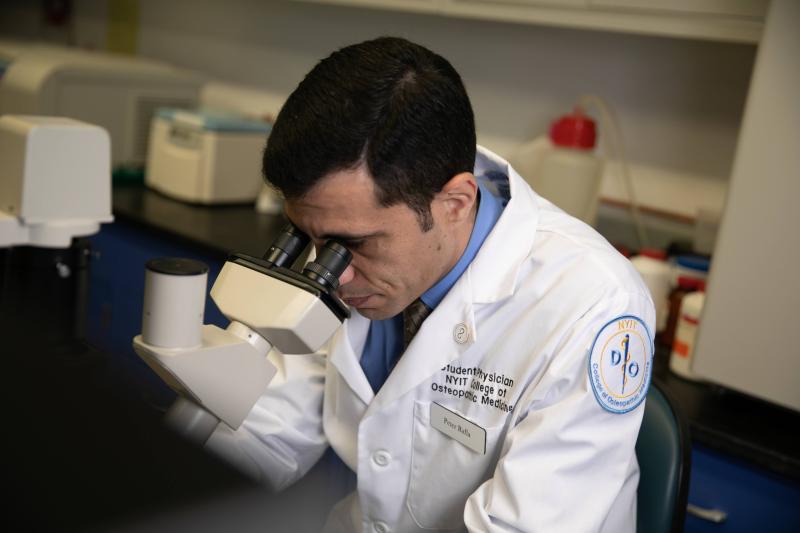What degree does a Doctor of Osteopathic Medicine have?
A Doctor of Osteopathic Medicine (D.O.) is a medical degree holder who is a fully licensed physician. The degree awarded to Doctors of Osteopathic Medicine is the Doctor of Osteopathic Medicine (D.O.) degree. This degree is equivalent to the Doctor of Medicine (M.D.) degree, which is awarded to allopathic physicians.
The primary difference between Doctors of Osteopathic Medicine (D.O.s) and Doctors of Medicine (M.D.s) lies in their approach to patient care and the additional training in osteopathic manipulative medicine (OMM) that D.O.s receive. Osteopathic medicine emphasizes a whole-person approach to patient care, taking into consideration the interconnectedness of the body's systems and the importance of preventive care.
Here is an overview of the education of a Doctor of Osteopathic Medicine:
Bachelor's Degree:
- Like allopathic medical schools, osteopathic medical schools typically require applicants to have completed a bachelor's degree from an accredited institution. The degree can be in any major, but coursework in the sciences is often a prerequisite.
Medical School (D.O. Program):
- Upon completion of a bachelor's degree, individuals pursue a Doctor of Osteopathic Medicine (D.O.) degree, which involves four years of medical school. During medical school, students undergo both classroom-based and clinical training.
Preclinical Years:
- The first two years of medical school, known as the preclinical years, focus on foundational medical sciences, such as anatomy, physiology, biochemistry, pharmacology, and pathology.
Clinical Rotations:
- In the third and fourth years, students transition to clinical rotations, gaining hands-on experience in various medical specialties under the supervision of physicians. This exposes them to a wide range of medical disciplines.
Osteopathic Manipulative Medicine (OMM) Training:
- Throughout their medical education, D.O. students receive training in osteopathic manipulative medicine (OMM), which involves hands-on techniques to diagnose, treat, and prevent illness or injury. OMM is a distinctive aspect of osteopathic medicine.
Residency Training:
- After graduating from medical school, D.O.s, like M.D.s, enter residency programs to receive specialized training in a specific medical field. Residencies typically last three to seven years, depending on the chosen specialty.
Board Certification:
- Following completion of residency, physicians pursue board certification in their chosen specialty. Board certification is typically obtained by passing examinations administered by relevant medical boards.
Continuing Medical Education (CME):
- Both D.O.s and M.D.s are required to engage in continuing medical education throughout their careers to stay current with medical advancements and maintain licensure.
In summary, Doctors of Osteopathic Medicine earn a Doctor of Osteopathic Medicine (D.O.) degree after completing a four-year medical school program. They then proceed to residency training, board certification, and ongoing continuing medical education. The D.O. degree is equivalent to the M.D. degree, and both types of physicians practice medicine, diagnose and treat illnesses, and can pursue various specialties in healthcare.
What academic degree is conferred upon completion of a Doctor of Osteopathic Medicine program?
The academic degree conferred upon completion of a Doctor of Osteopathic Medicine (DO) program is Doctor of Osteopathic Medicine (DO). There is no distinction in the title compared to a Doctor of Medicine (MD) program. Both degrees recognize the successful completion of rigorous medical training and qualify graduates to practice medicine in the United States.
While the paths to licensure and practice differ slightly between DO and MD programs, the core medical curriculum, clinical rotations, and required licensing exams are largely similar. Both programs emphasize a holistic approach to patient care, incorporating osteopathic principles alongside traditional medical knowledge.
So, to reiterate, the answer to your question is simply Doctor of Osteopathic Medicine (DO). Remember, the focus is on the completion of the program and the resulting qualification to practice medicine, not on any specific differences in the degree title itself.












